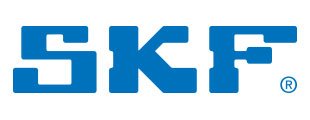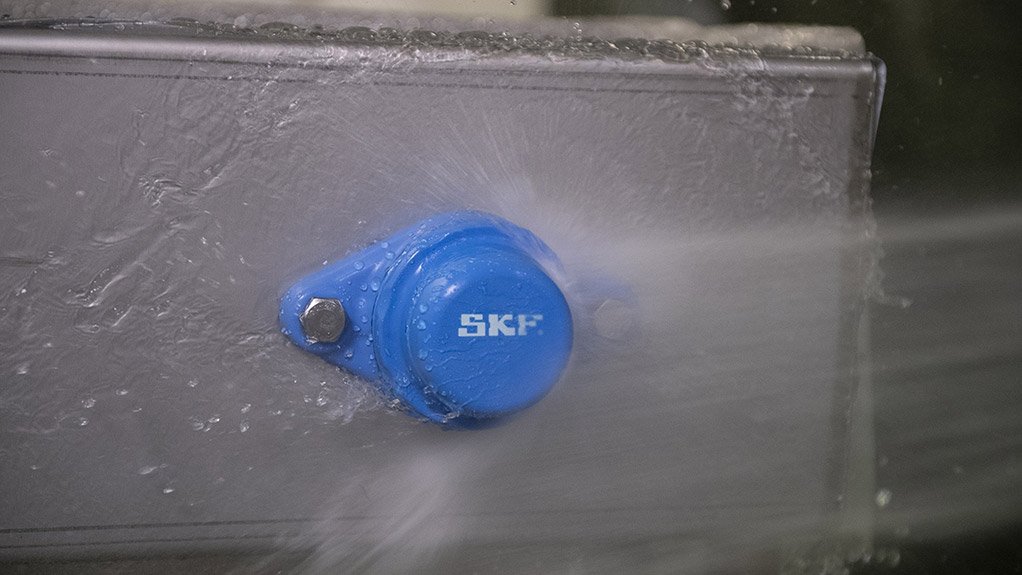The Food & Beverage industry have to comply with stringent regulations to ensure the production of safe food. Companies apply numerous safety practices such as the use of hygienically designed ‘food grade’ machines and equipment in a bid to protect their food products during the manufacturing and processing stages. Food safety can be compromised by several contamination threats including acidic or abrasive ingredients, high temperatures and frequent wash-downs with corrosive cleansing agents. The resultant corrosion of machine components can cause leakage of lubricants that can potentially contaminate end-products.
To an effort to assist the Food & Beverage industry in eliminating these threats, SKF has adopted an innovative approach to hygiene design. The result is the development of the Food Line ball bearing range which includes the SKF Blue Line series. Incorporating food grade and corrosion resistant components, these units are built from the ground up, each element designed to balance superior performance and hygienic standards aligned with international guidelines.
The hygienic surface geometry of the housing, end cover and back seal is smartly designed to resist residue build-up, facilitate cleaning and helping to reduce the spread of bacteria and allergens. The ingenious design also incorporates blue materials for optical detectability. The Blue Line range can be supplied as open or completely sealed units with an end cover and back seal. The patented bearing sealing system and exceptional grease performance contribute to extended bearing life and high reliability. Designed for relubrication-free operations, these units reduce maintenance and related grease and labour costs.
SKF’s Food Line bearing range is also available with advanced Solid Oil technology. Solid Oil is a lubricating oil-saturated polymer matrix that virtually fills the internal space in a bearing. The polymer matrix’s micro-pore structure holds the lubricating oil. As the polymer matrix is pressed into the bearing and then cured, a very narrow gap forms around the rolling elements and raceways, enabling the bearing components to rotate freely. Oil is drawn from the matrix into these gaps, providing continuous lubrication to the bearing. Solid Oil bearings are lubricated for life and contain 2 to 4 times more lubricating oil than similar bearings filled with grease. Solid Oil is resistant to virtually all chemicals used in wash-downs.
SKF offers customers a range of high quality, monitoring tools to help optimise Rotating Equipment Performance for extended machine availability, reliability and low operating costs. Preventative maintenance is fundamental to enhanced production as early detection can prevent catastrophic and costly machine failure. The cutting-edge, multi-functional, compact SKF TKRT 31 digital tachometer enables inspection of rotating equipment or machines, using laser or contact measurement to determine rotational and linear speed as well as distances.
Accurate and timeous lubrication is critical to prolonging bearing life which leads to increased uptime and production. Over-lubrication is both costly and can cause serious complications, while under-lubrication can allow contaminants into the bearing, resulting in premature bearing failure. SKF’s TLGU 10 Ultrasound Lubrication Checker offers a practical, easy-to-use solution for accurate re-lubrication. With a simple connection to a grease gun and using ultrasonic technology, this intuitive device helps to improve the manual re-lubrication process, ensuring that the correct amount of lubricant is dispensed into a bearing at the right time. This subsequently results in maximised bearing performance and lifetime, delivering overall lowest total cost of ownership for customer and end-users.






